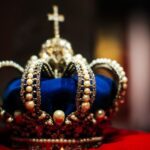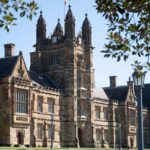Over the next seven weeks the Bible & Theology Channel will be featuring a new seven-part series from various writers on the meaning of humanity – especially the concept of being made in God’s image. To kick us off, Michael Jensen offers us a brief introduction into the concept of the imago dei.
The concept of the Image of God (or imago dei) has also been one of the most contested theological concepts in Christian history, often falling subject to prevailing philosophical fashions rather than properly theological and exegetical reflection.
As the text of Genesis 1:26-28 says, God created human beings to be “in the image and likeness of God”. Whereas God makes all the other creatures ‘after their kind’, in keeping with each other, he makes humans specifically ‘in our likeness’and ‘in our image’ (Gen 1:26). In some way, visible human beings are made for the purpose of reflecting the divine being. But… how?
An Elusive Attribute?
The most common way of describing the image of God in Christian thought has been to relate it to some capacity that human beings have. In particular, the reasoning ability of human beings has been suggested as the feature in which they most resemble the divine being. Irenaeus bishop of Lyon (d.202AD) describes humans as “endowed with reason, and in this respect like God.” Unfortunately, this is inadequate as a view of God; and it has scant support from the text of Scripture. It emphasises the human being as individual, rather than a being in relationship to others. The Bible never relates the image of God concept to some essential quality of the human person in the way that has been traditionally suggested.
A second common reading of the image concept has been in terms of the task of dominion. This approach refers to the Ancient Near Eastern notion of a ruler being a representative of a divinity. It is certainly the case that Gen 1:26 puts the notion of “rule” very close to the idea of the image of God.
Another suggestion, made by Karl Barth amongst others, is that the image refers to the relationality of human beings, as they reflect the inner life of the trinity. Human existence is, from the beginning, differentiated. The capacity for relationship with one another and the carrying out of the task of filling the earth with more of their kind by means of their fertility is right at the basis of human existence. After all, “it is not good for Adam to be alone.”
While these suggestions have their virtues, they’re also static. They don’t pay enough attention to the fact that humans are supposed to become something. They also overlook the part humans play in the story of the world.
Stewards of God’s creation
We can see part of this function in the relationship humans have with the other living creatures. They are to have “dominion” (Gen 1:26, 28), yet they are supposed to express this authority through service. In Genesis 2, the man is given the task of tilling the ground and naming the animals in response to the command of God. His work involves bringing order to God’s world with the purpose of making it fruitful. He is to bring the creation to its flourishing – including himself as a creature that is part of the creation.
The biblical idea of dominion provides a crucial counterbalance to the tendency of the technological west to view creation as raw material to be moulded for the exercise of human power. Instead, humans are supposed to represent God’s good purposes for his world.
Agents of God’s word
If humans are called to act as God’s representatives, then this is only possible because they are also able to hear and respond to God. Humans have the capacity to hear and respond to God’s call, to speak to him, to enter into covenants with him and worship him. This is the true reason why humans come with the divine gift of speech: they are what Kevin Vanhoozer calls ‘communicative agents’.
Anticipations of Christ
From the perspective of the New Testament, the ultimate meaning of what it means to be created in the image of God is revealed in Christ. The affirmation that all human beings are made in the image of God is reasserted (1 Cor 11:7; Ja 3:9). Yet Paul describes Christ as the true image (2 Cor 4:4; Col 1:15); the author of Hebrews speaks of Jesus as “the exact representation of his [God’s] being.” Jesus Christ himself is now the image to which human beings are now called to be conformed. Or as Paul puts it. “…those whom [God] foreknew he also predestined to be conformed to the image of his Son,” (Rom 8:29).
Beyond Capacities
The attempt to examine human nature in terms of attributes is not entirely wrong. The calling and destiny which God has given us requires certain capacities to speak, reason, choose and relate. But these capacities are secondary to our telos – the reason for which we were made. Ultimately there is no true understanding of what we are meant to be apart from Christ.
Photo: Armend, www.freeimages.com















